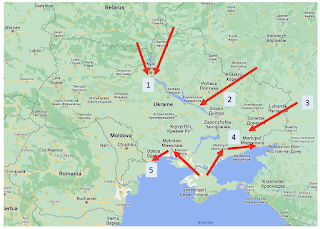A handful of years ago, I entered the phase of life of helping out in looking after aging parents. At this moment in 2024, my dad passed on in 2023 while my mom is still alive.
The journey started a handful of years ago when my dad let me know that he had called 911 when my mom has a seizure. I'll keep some of the details vague or altered for privacy reasons. The paramedics took mom to a high level medical facility and was in the ICU for a few days. When the MDs determined ICU was no longer needed she was transferred to Kaiser as she and my dad have Kaiser Medicare Advantage. After KP was satisfied that the situation was resolved as far as hospitalization was concerned, she was sent to a rehab facility.
The rehab facility asked the family to pay for a care aide to help look after the patient as the rehab facility staff to patient ratio is too high. Everything happened fast and never got around to find out if that was really true or not.
Eventually, mom came home and we hired a care aide through an agency to help my dad look after mom.
Some agencies only serve as a point of contact with care aides and the family makes a contract directly with the care aides. Some care aides work through an agency so the contract is with the agency. Suffice to say good care aides are worth a lot and finding one that is a good fit can take time and I'd say things worked out quite well for us. Of course, there are families who could not afford care aides and family members take that role making arrangements with works situations and in some cases even forgoing work to be care givers.
It is widely accepted that their are five stages of grief: denial, anger, bargaining, depression, and acceptance.
Most associate those steps with death but it applies to other major life changes.
As an adult child, I saw my parents as independent and capable and figured that would never change. But of course, they lived long enough that that was no longer the case and I was undoubtedly in denial about that for a long time. As I began to have a part to play in looking after mom and dad, the denial phase was coming to an end because it was staring me in the face. Mom no longer could do all the daily activities of living without help. Dad was of an age where it would be hard for him to help mom by himself.
The anger, bargaining, and depression phase was all jumbled together. There was the guilt of not seeing that my folks had been in need of help before the crisis had arrived and in a sense I had neglected them and now was not doing enough for them. There were moments of anger that seemed to be directed in all directions and toward whomever was around, as the new situation changed our lives. And finally, there were moments of feeling I could not cope with the changes and became unable to respond to anything.
It took some time to reach some sort of equilibrium of taking on the role and having some gratitude about the time that remained with my parents.




